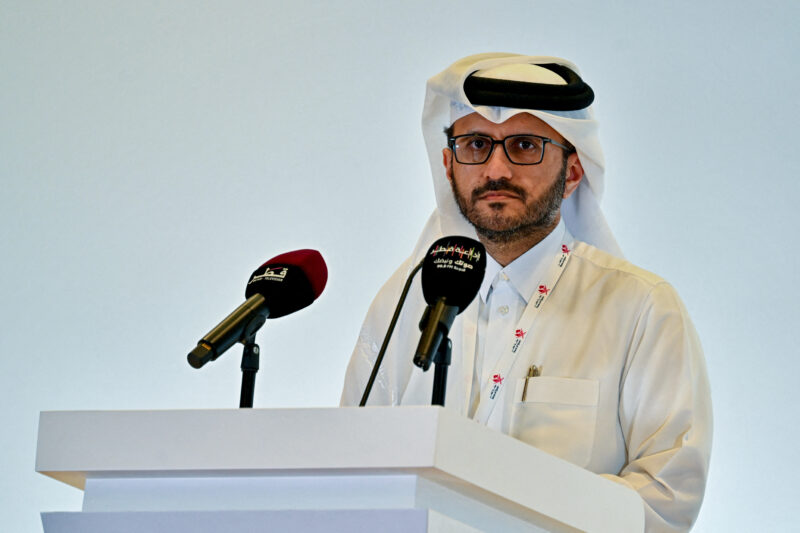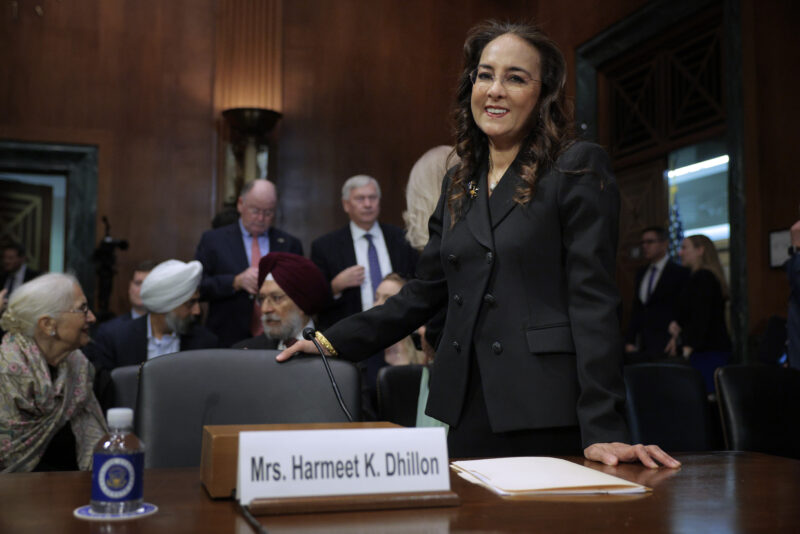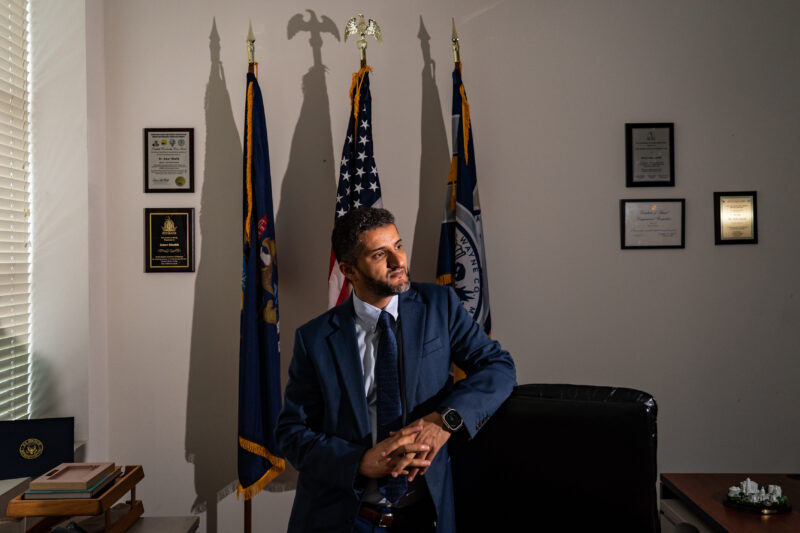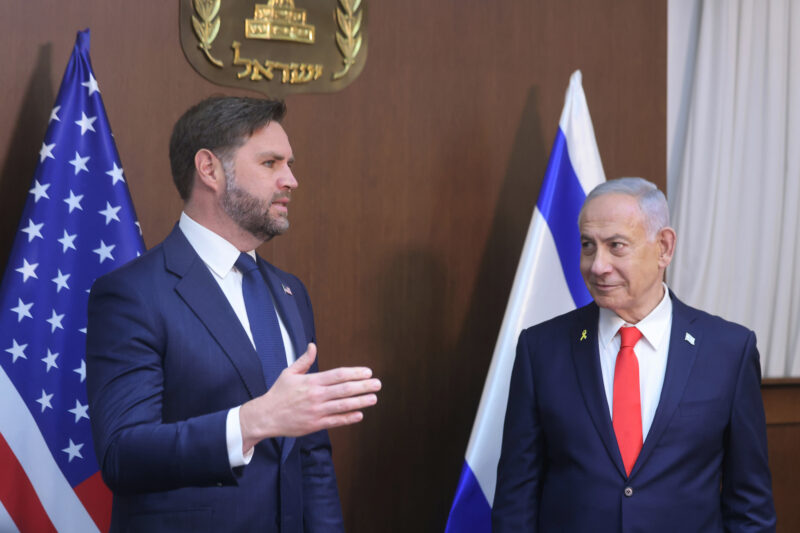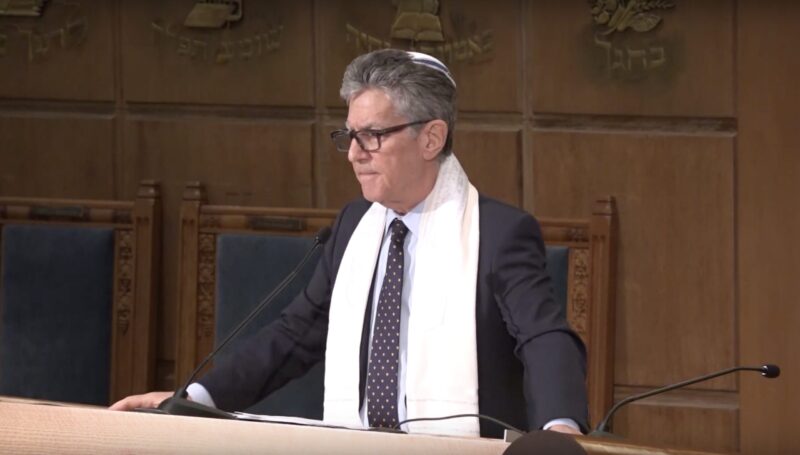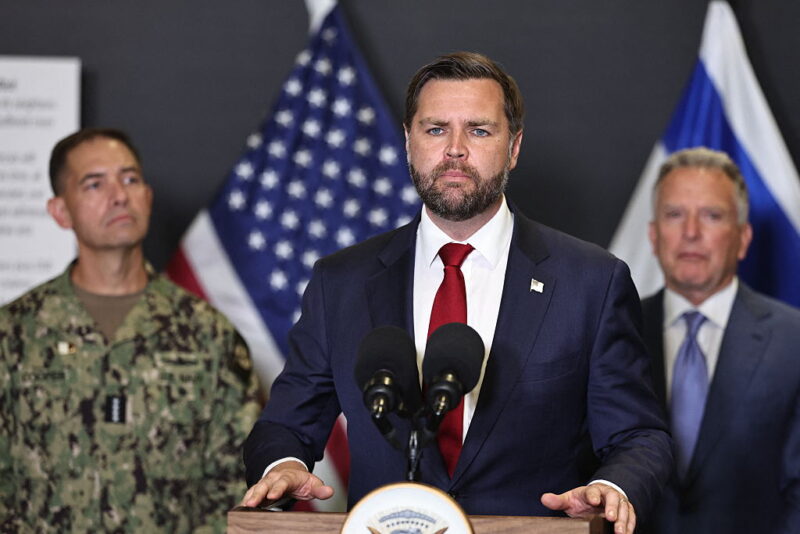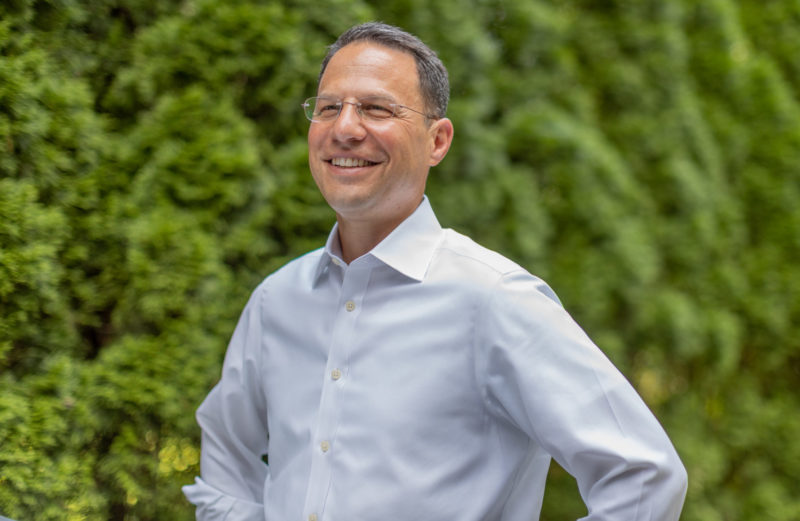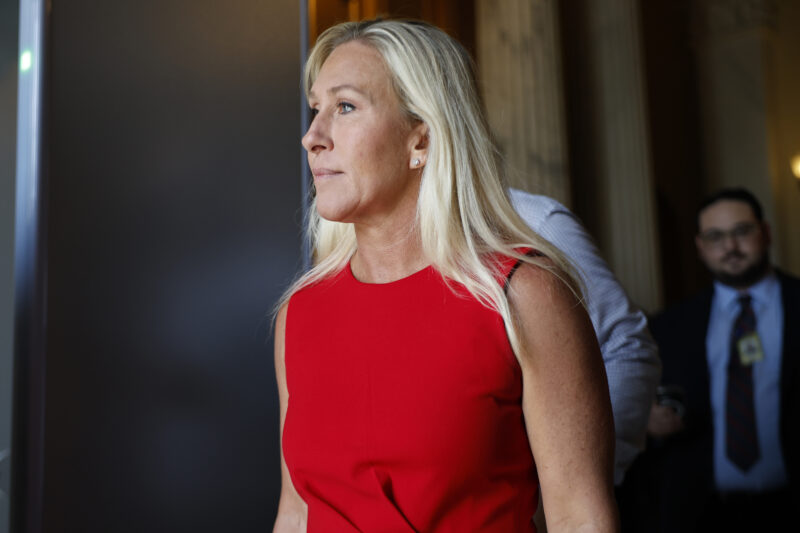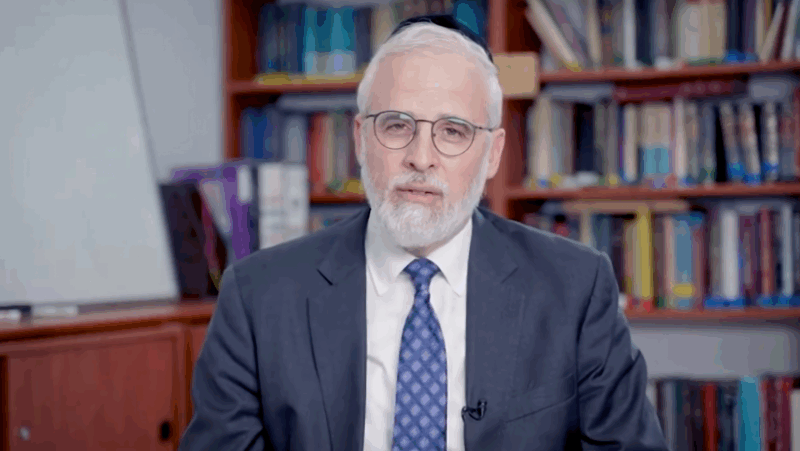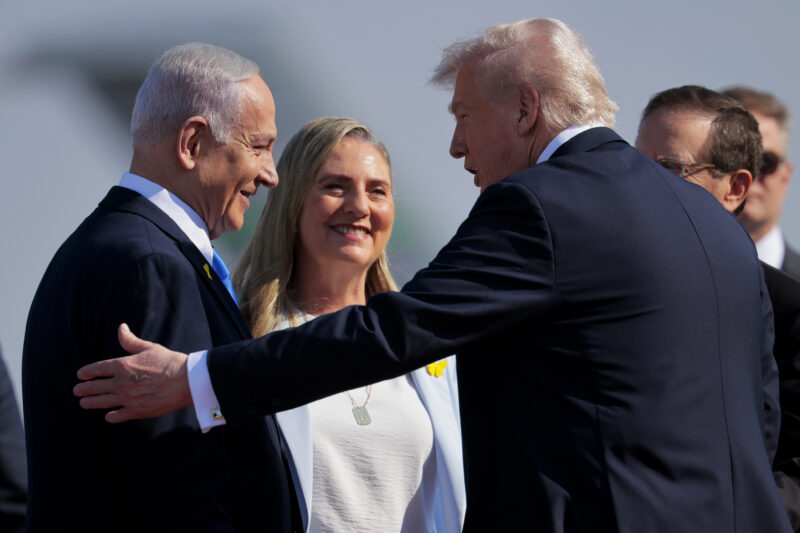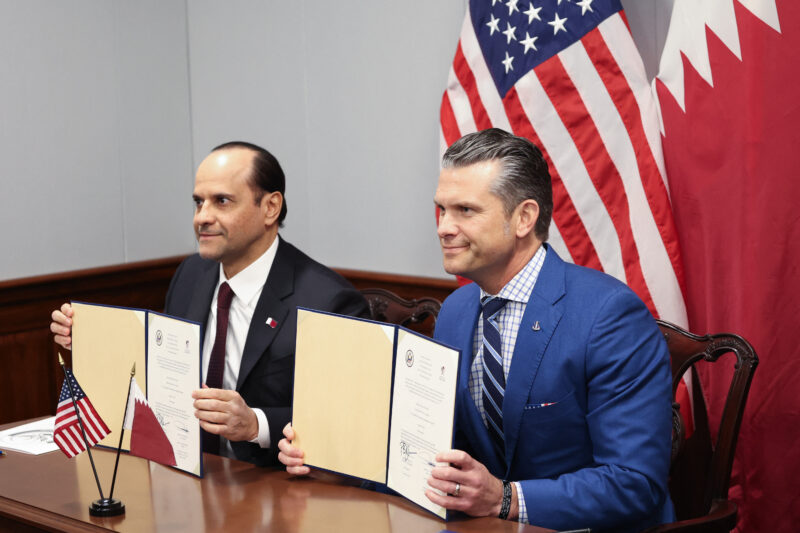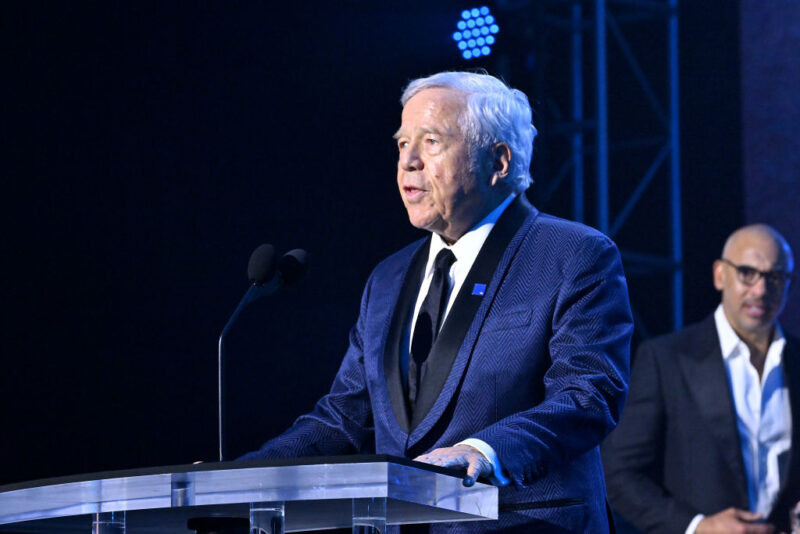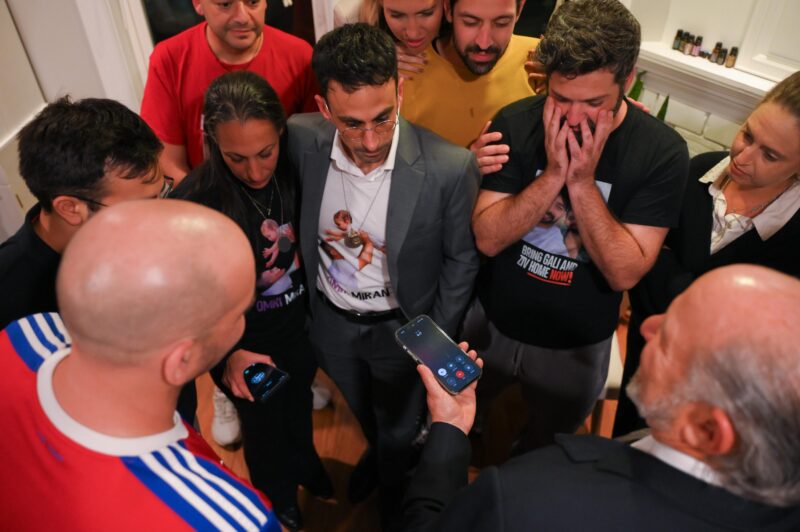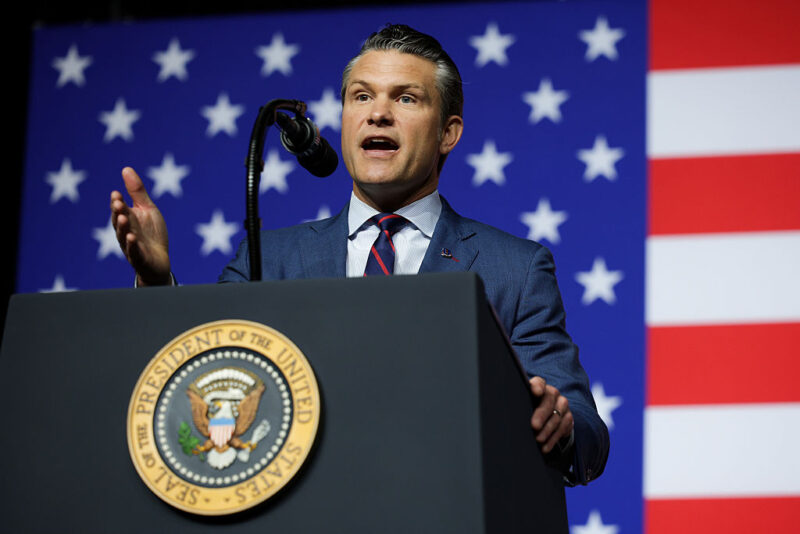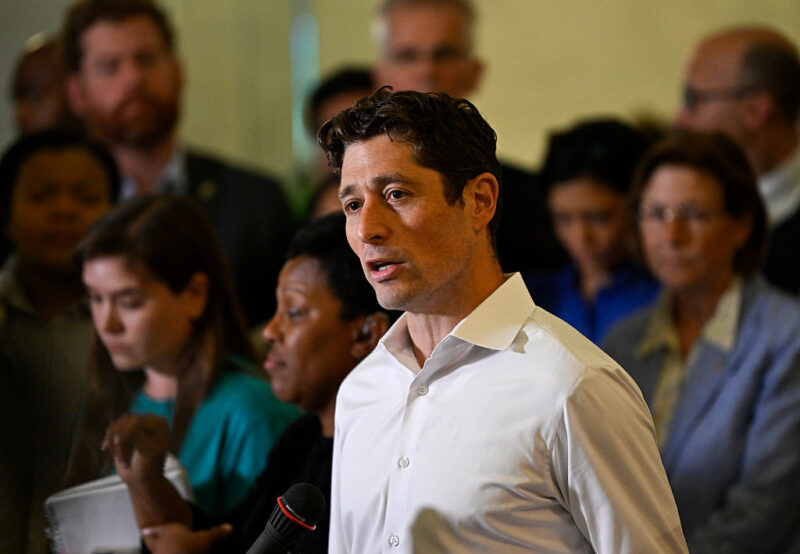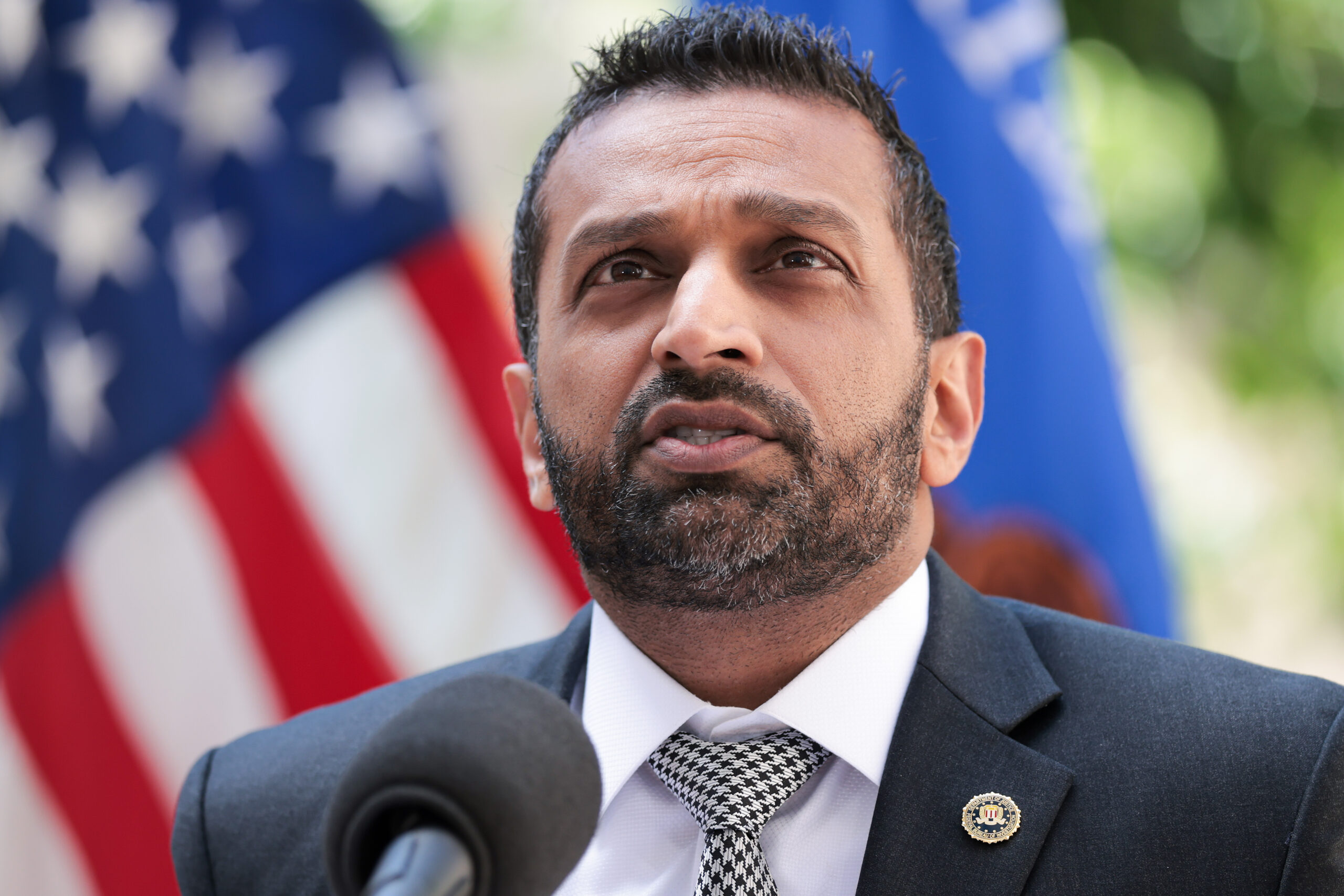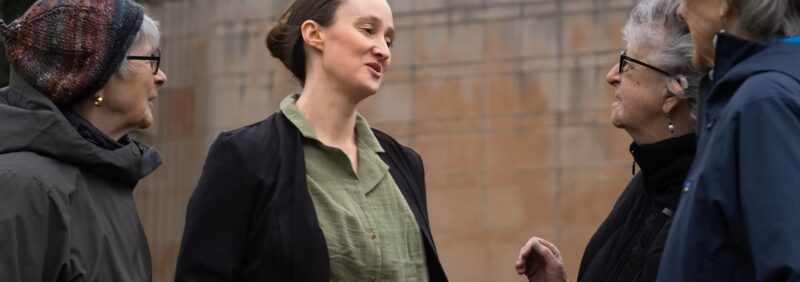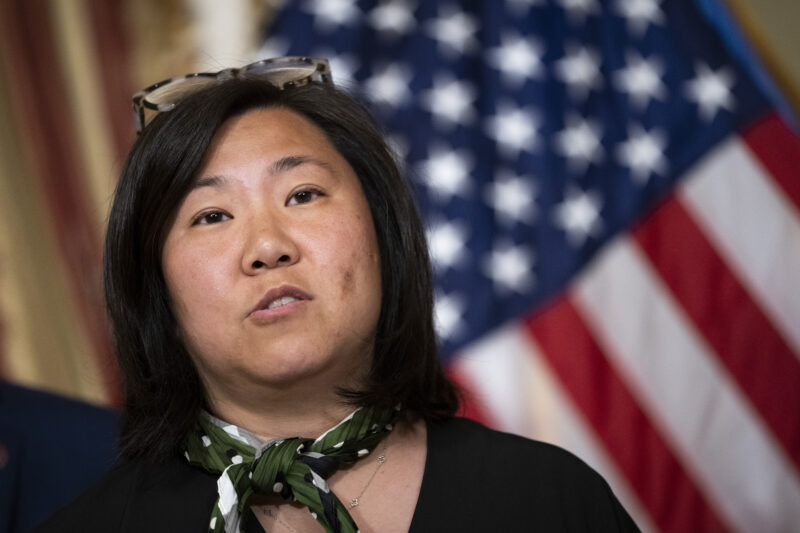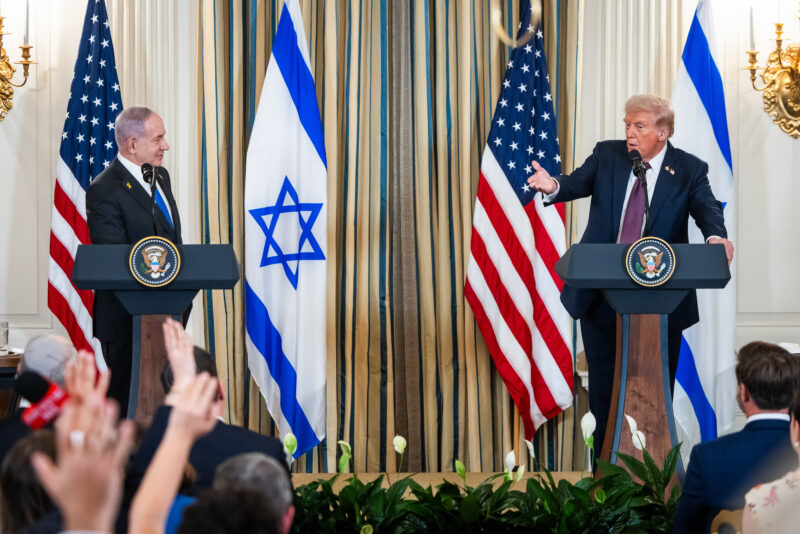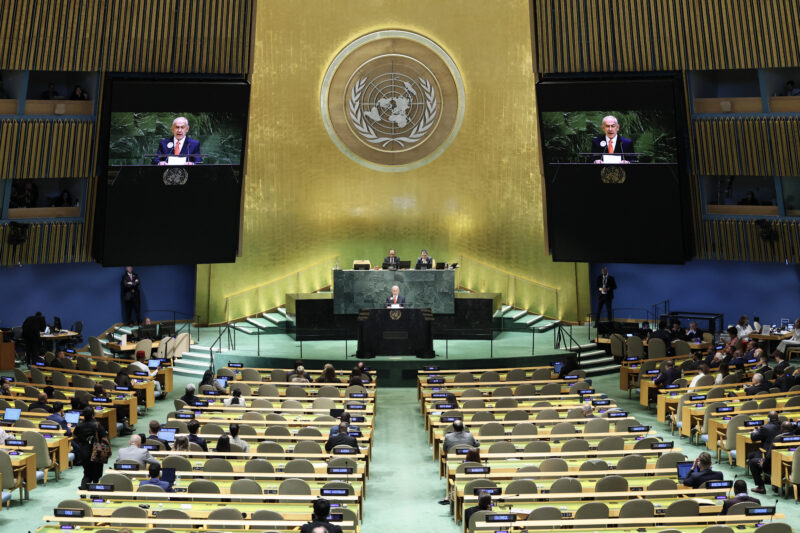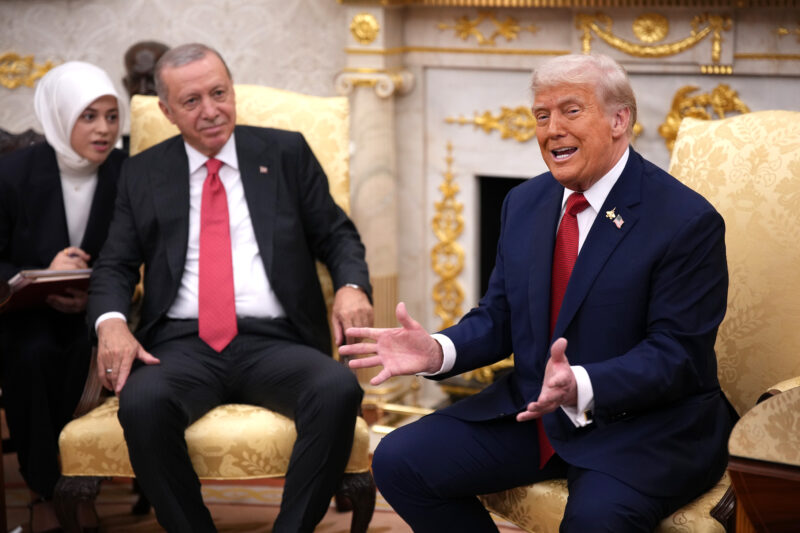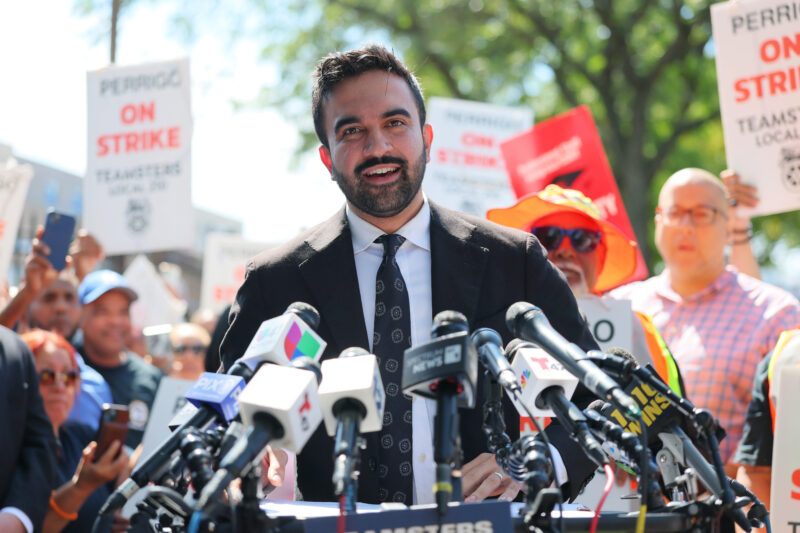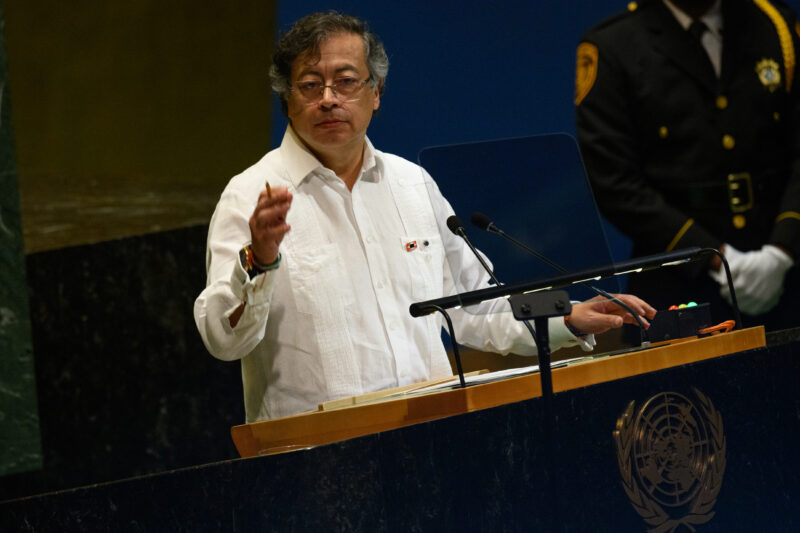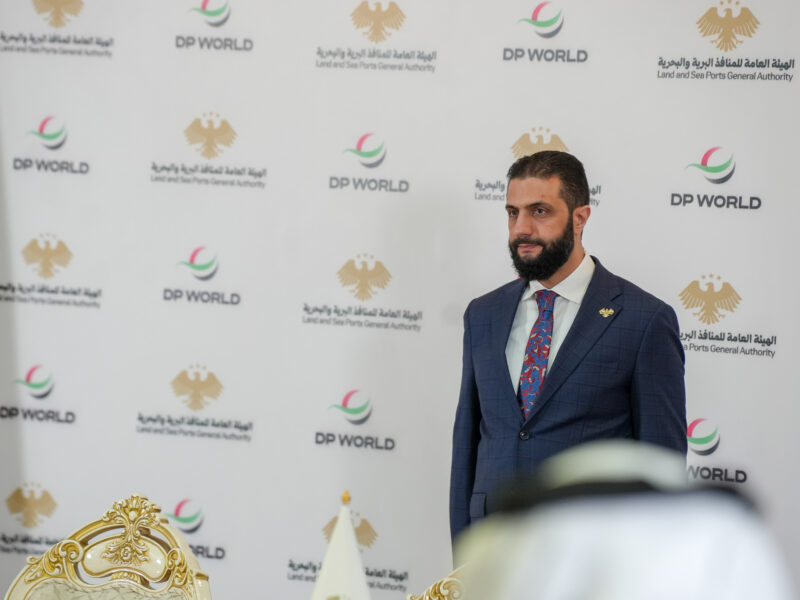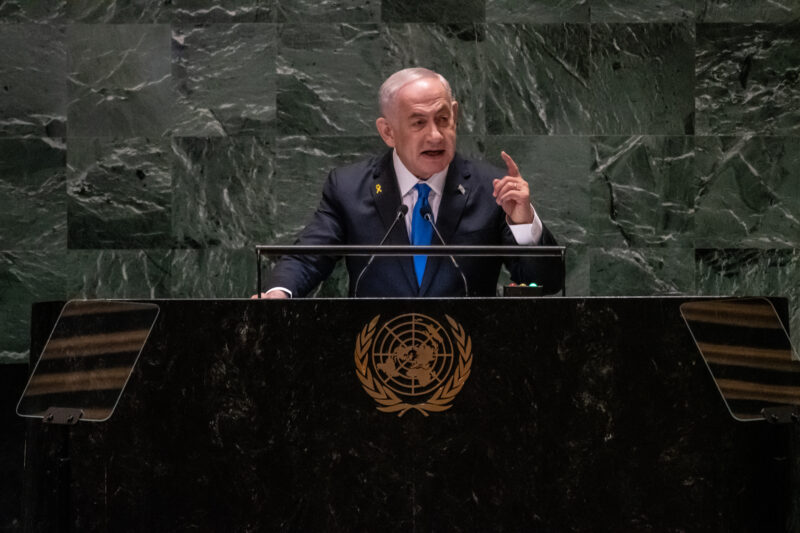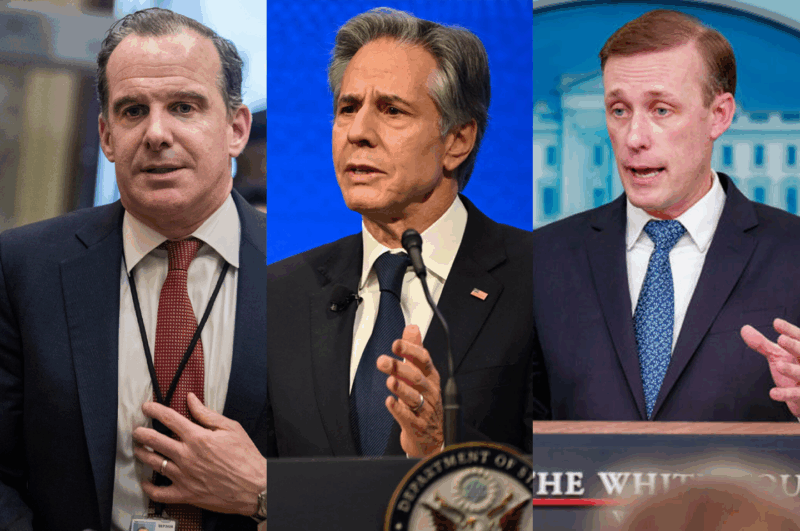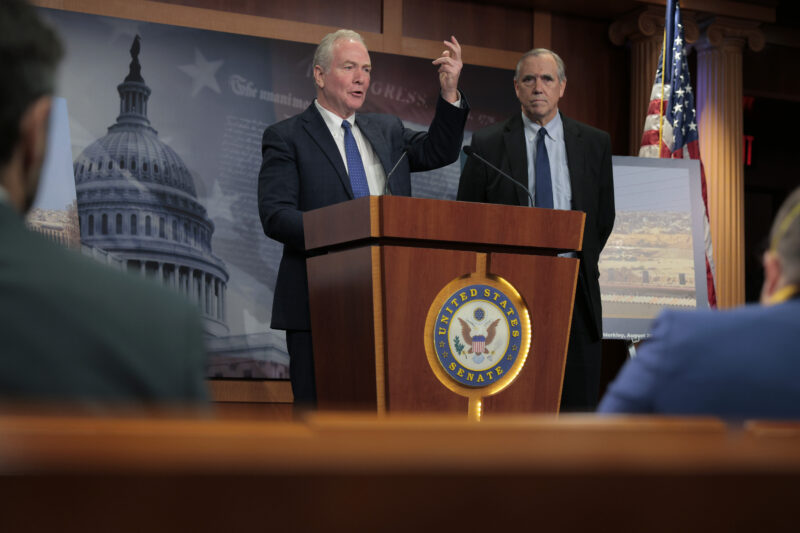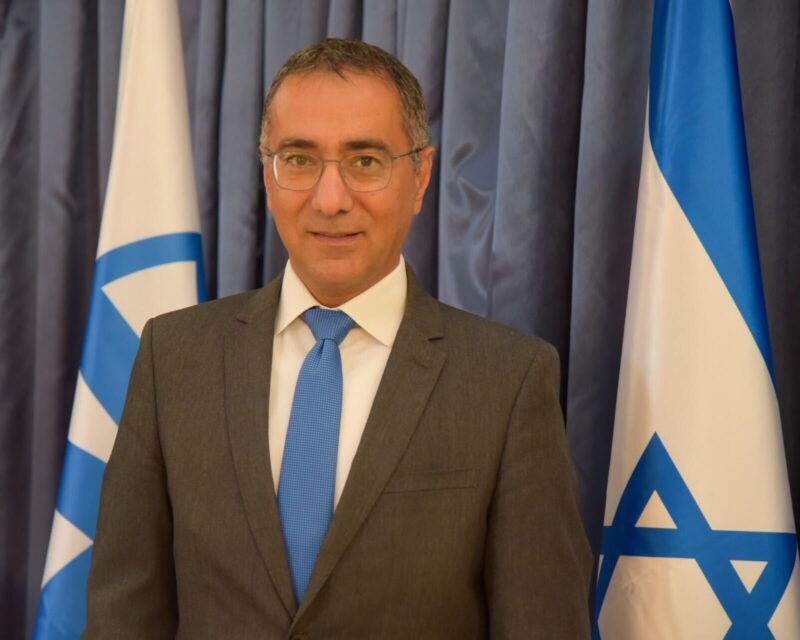Freshman House Republicans discuss their recent trip to Israel
Both Reps. Julie Fedorchak and Randy Fine slammed European leaders, saying they are making it harder to get hostages released

Tom Williams/CQ-Roll Call, Inc via Getty Images)Kayla Bartkowski/Getty Images
Reps. Julie Fedorchak (R-ND) and Randy Fine (R-FL)
Returning from a trip to Israel, two first-term House Republicans blasted European nations and others that have recently hardened their positions toward Israel, saying that those decisions had set back efforts to free the hostages and end the war.
One of the lawmakers who visited Israel with the AIPAC-affiliated American Israel Education Foundation also indicated that she had not heard in meetings with Israeli leaders a concrete plan for bringing the war to an end.
Rep. Julie Fedorchak (R-ND) told Jewish Insider she had been interested during the trip to examine the increasing hostility by European countries and others toward Israel, including their decisions to recognize a Palestinian state, and their public postures blaming Israel for the humanitarian issues in Gaza.
“It is not supported by the facts on the ground. … Europe’s actions definitely set back the … negotiations for Hamas releasing the existing hostages — potentially resulting in them dying,” Fedorchak said. “It’s maddening that these countries that should know better, or should take the time to find out better, are taking these very unhelpful positions.”
She called on the European leaders and others criticizing Israel to visit the sites of the Oct. 7, 2023, Hamas attacks and meet with Hamas’ victims, calling it “almost unfathomable that people are blaming Israel.”
“Go talk to the families whose houses were invaded, and the parents of 15-year-olds who died being shot at in a safe room, trying to hold the door from the terrorist on the other side,” Fedorchak said, “families who had to watch their women be raped and abused. The 300 young people that were killed at the music festival.”
Rep. Randy Fine (R-FL) told JI that it was critical for the group, and for supporters of Israel in general, to “continue to make clear the lie being spread about starvation” — which Israeli Prime Minister Benjamin Netanyahu has insisted does not exist in the enclave while President Donald Trump has said there is “real starvation.”
Fine also said it was crucial to “stand up to these countries like France and the U.K. and Canada and Australia that have fully embraced Muslim terror and want to reward it.”
He likewise argued that the European countries’ actions had extended the war. Fine said he’s not worried, however, about longer-term fallout from the shift away from Israel by some of its longtime European allies.
“I’ve always thought Israel needs to stop caring about what the world thinks and take care of itself,” he said. “There’s lots of antisemites in the world, they’re always looking for an excuse. … All of this stuff is simply an excuse to let your inner antisemitism out. That’s all any of it is.”
Fedorchak indicated that Israeli leaders had not laid out a concrete plan for how they would bring the war to an end.
“The big question of how do you end this, and how do you get out of it with the hostages alive — I didn’t ever hear a real great plan for that. I think that’s a million-dollar question,” Fedorchak said, highlighting concerns about the hostages being held in potentially booby-trapped tunnels, the risks to Israeli soldiers in the ongoing military campaign and the likelihood that further concessions to Hamas in negotiations will further embolden the terror group.
“I was frustrated that a long-term solution — or even an immediate solution for the war — is very elusive. I wish that it hadn’t gone on so long. I wish that when the hostages were first taken, the whole world would have stood with Israel and tried to get them back right away … so it wasn’t allowed to drag out so long,” she said.
Fine said that specific plans for ending the war would be sensitive for Israel to share, but that the goals remain the same, of bringing home the hostages and ensuring that terrorists do not continue to control Gaza.
“It has to get to an end point, so I am confident that it will get there,” Fine said. “I’m disappointed that I think these European countries, in their publicly backing Hamas, drag it out. If I was in Taiwan right now, I’d consider going into China and killing a bunch of people, because that seems to be the great way to get your country recognized.”
Fedorchak said she was struck by how the ongoing hostage crisis “has pretty much frozen in time that invasion in Israel, and everybody is reliving it pretty much constantly,” adding that the ongoing hostage situation is an “an ongoing, terrible human rights offense by Hamas.”
She added that the trip had highlighted the proximity of the threats that Israel faces: The lawmakers were forced to take shelter from a rocket attack on their first night in Israel. “You can’t appreciate what that’s like if you don’t go there and see it.”
The group also met with leadership from the Gaza Humanitarian Foundation.
Fine said that the meeting was an opportunity to learn more about its efforts — including that “they haven’t used any lethal force at all since they set up their sites,” he said.
He also noted that the GHF leaders told the group they had been trying to work with Hamas, “but the U.N.’s not interested in working with them, because the U.N. is an offshoot of Hamas.”
Fedorchak said that GHF leadership gave the impression that the organization was “making progress” in expanding aid deliveries and aiming to open more distribution sites.
She said the U.S. should continue providing humanitarian aid and called on other nations to do so as well, calling it “critical” to protecting and supporting the Palestinians “that are really stuck there” as Israel continues its efforts to defeat Hamas, either through military means or a Hamas surrender.
“Hamas still has a stranglehold on the leadership and governing in Palestine or in Gaza, and they’re a terrorist organization with the [goal] of eliminating Israel,” Fedorchak said. “So that’s not going to work long term there. I don’t envision any time where Hamas can lead Gaza and provide peace and economic stability for the people there and for their neighbors to the east and north of Israel. So Hamas has to go.”
Nevertheless, Fedorchak said she came away feeling hopeful about the potential future beyond the war, saying that there’s “a lot of promise” for expanding the Abraham Accords and ultimately “hopefully providing an opening for a new pro-peace Palestinian leadership to take root in Gaza and the West Bank.”
Fine, who has traveled to Israel before and has quickly built a name for himself as a combative supporter of Israel in his short time since taking office, said he was grateful for all of the colleagues who joined the trip and showed their support for Israel.
“It was good to see that the anti-Israel voices are small and they are loud,” Fine said. “The vast majority of my colleagues, I think, are even more pro-Israel now than they were before. … I don’t think we can give too much attention to the antisemites in Congress. I think the vast majority of Republicans are more pro-Israel now than they were before, not less.”
He argued that an overlapping trip by House Speaker Mike Johnson (R-LA) — during which Johnson offered support for Israel asserting full sovereignty over the West Bank, which Fine refers to by its biblical name, Judea and Samaria — is a signal of Republicans’ continued and increased affinity for the Jewish state.
Addressing those — including some Republican lawmakers — who’ve grown frustrated with Israel’s leadership and the war in Gaza, Fine said that “their frustrations are misplaced.”
“The … people who it appears are starving in Gaza are the hostages,” he said. “The responsibility for all of this lies with the Muslim terrorists. This all ends if they release the hostages and surrender.”
Fedorchak said that the visit had given her “a greater appreciation for the value of America and our willingness to stand up for the ideals” that the U.S. shared with Israel and its allies.
“I appreciate that the U.S. is willing to be on the front lines defending that, and the partnership with us and Israel is obviously central to Israel’s ongoing strength and existence in the Middle East,” she said. “It’s really valuable to have an ally like Israel in the Middle East.”
Fedorchak said she was deeply impressed with Israel’s “resourcefulness,” both in developing impressive weapons and defensive systems as well as in agriculture, and with Israelis’ focus on family, patriotism and national service.
Fine noted that the group had also received a briefing about the atrocities committed against the Druze in Syria, and condemned the international community for its comparative lack of attention on that crisis. “Nobody cares when you see Druze being slaughtered in Syria … no Jews, no news,” he said.
Asked about whether the U.S. should adjust its policy toward the new Syrian government in response to the attacks against the Druze, Fine declined to weigh in specifically, while reiterating that the situation is “dire” and is being overlooked.
In addition to the large group meetings, Fine said he’d taken several one-on-one meetings at the request of Israeli leaders, including with Finance Minister Bezalel Smotrich, Knesset Constitution, Law and Justice Committee Chairman Simcha Rothman and members of Israel’s foreign ministry.
He said that those meetings had also focused on Israeli security issues — ”making sure Israel is safe and secure, Jews are safe and secure and having zero tolerance for Muslim terror.”
Fine also said that he was stopped by Israelis repeatedly during the trip who recognized him and were “appreciative of the stands that I’ve taken, about wearing a kippah.”






